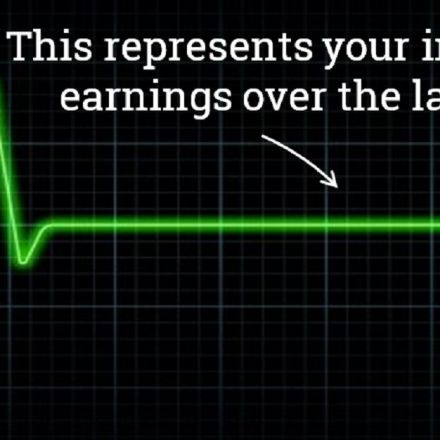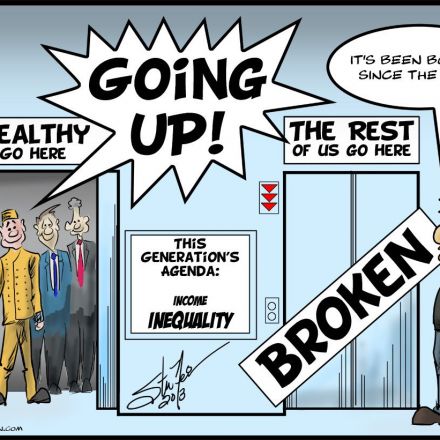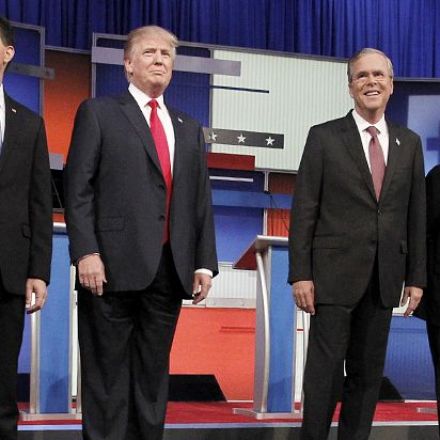

10 years ago
12
Pay Is Stagnant for Vast Majority, Even When You Include Benefits
Between 2007 and 2014 the median worker’s wages and compensation declined, respectively, by 4.0 and 1.9 percent. Among the bottom 40 percent of workers there was an even greater decline in compensation than there was in wages, indicating that including benefits as well as wages in an analysis results in a more adverse trends
Continue Reading-
Compensation inequality: evidence from the National Compensation Survey
Using data from the National Compensation Survey, this article examines compensation inequality measures and trends over the 2007–2014 period.



























Join the Discussion
The top 10% have had increases. The rest have decreased.
So the rich are getting richer and the poor are getting poorer.
It cannot sustain. See this TED talk by Nick Hanauer
That's an awesome talk.
This only shows data from 2007-2014. If you're looking for sustainability the correct takeaway is that recessions with tepid growth are unsustainable.
Considering that the recession officially ended in 2011 but that the recovery never reached the majority of Americans, I think this makes its point well enough.
If you have Netflix there's a great documentary on this trend called Inequality For All
Here I am just hoping they raise minimum wage in my state.
I wonder if there were any changes in government policy in that time frame that might have affected the number of hours worked to qualify for benefits or that might have incentivized companies to reduce hours or eliminate some benefits. Like, perhaps health care reform.
Well, let's see. We tied health insurance to employment because Republicans were looking for any means to block universal health care (aka "Hillarycare") even though Newt Gingrich later admitted their reform proposal was a red herring. We undermined the power of unions and weakened worker rights. Wages have been declining for years as public support programs were reframed as "entitlements" and access has been restricted or funding cut as a means to pay for extraordinary tax cuts. And of course employers have been allowed to get away with eliminating jobs through automation and requiring employees to handle more responsibility and work longer hours without additional compensation.
So yes, I see quite a few areas where government policy could be adjusted to help resolve the problem.
Universal healthcare could not get past the Democrats. Republicans had nothing to do with it. It took the cornhusker kickback, the Louisana purchase and a personal ride on AF One and a presidential handy for Kuchinich to get passage of what we ended up with.
What policies still need adjusting isn't the question I raised. The question was what impact policies had on stagnant pay and benefits. When HHS decided 30 hours was going to qualify for benefits, every business that could do it dropped hours to dump people on exchanges. The fact that no one apparently saw that coming was very much a case of "ready, fire, aim".
So Gingrich was lying again? I can believe that.
Policy is very much at issue here. The more latitude we gave businesses to run roughshod over workers the worse things have become, and this problem has been accelerating ever since the 80s as we started enabling the rich to keep more of their money and take less of it for taxes to maintain public support. "Trickle down" didn't.
To clarify, Republicans had nothing to do with what became the PPACA. IIRC, It passed without a single (R) vote.They expressed an idea 20 years earlier that gets trotedt out as justification/blame for current mistakes when things veer off the rails. "Well, The other side thought of it first, we just implemented it" (badly).
Current and past policies are certainly an issue. Your link doesn't really address that, which is where I chimed in.
That's because they didn't want reform. However, we were examining the roots of the current problem with income inequality and that did not start with the PPACA. It began long, long before that as Republicans learned how to gain back control over national government policy. Had "Hillarycare" passed in the 90s the PPACA would have been completely unnecessary, and you can think Gingrich for that.
This false claim comes up periodically which is why I made sure to make a short record of health care reform over the past thirty years. Republicans have more to do with Obamacare than they're willing to admit.
Only if you ignore the impact that killing health care reform in the 90s had on reform efforts today.